
Scholz Promises €4 Billion for EU-Africa Climate Initiatives
German Chancellor Olaf Scholz pledged €4 billion ($4.4 billion) for the Africa-EU Green Energy Initiative through 2030 and
2023-11-20 18:18

Scientists discover fluffy 'alien' planet where it rains sand
Experts have discovered a fluffy “alien” planet where it rains sand in stunning new observations from the James Webb Space Telescope. The bizarre-looking planet is officially known as exoplanet WASP-107b and has a cloud of silicate sand that exists high within its atmosphere giving it its strange fluffy appearance. NASA’s James Webb Space Telescope (JWST) has been responsible for some astounding findings since it was launched in 2021, including a mysterious galaxy shaped like a question mark. Now, observations made by the telescope have been used by experts who have been able to determine the atmospheric composition of the exoplanet that was pictured. A team of European astronomers found that water vapour, sulfur dioxide and silicate sand clouds existed in the exoplanet’s diverse atmosphere. The exoplanet WASP-107b is one of the lowest-density planets that astronomers are aware of. To put it into context, it is the same size as Jupiter, but has just 12 per cent of Jupiter’s mass. Thanks to its low density, it has allowed scientists to take a deeper look into the planet’s atmosphere, exploring 50 times deeper than would be possible with denser planets. The discovery of sulfur dioxide was a surprise because the host star it orbits only emits a small amount of high-energy light photons. But, its low-density atmosphere allows the photons to penetrate WASP-107b’s atmosphere where the chemical reaction that creates sulfur dioxide can occur. They also discovered that it essentially rains sand on the exoplanet due to the presence of clouds high in the atmosphere made up of fine silicate particles. Experts believe the clouds of sand form in the same way as rain does on Earth as the droplets continually fall and condense back into cloud form. The lead author of the study, Leen Decin from Katholieke Universiteit Leuven in Belgium, explained: “JWST is revolutionizing exoplanet characterisation, providing unprecedented insights at remarkable speed.” She added: “The discovery of clouds of sand, water, and sulfur dioxide on this fluffy exoplanet… is a pivotal milestone. It reshapes our understanding of planetary formation and evolution, shedding new light on our own solar system.” How to join the indy100's free WhatsApp channel Sign up to our free indy100 weekly newsletter Have your say in our news democracy. Click the upvote icon at the top of the page to help raise this article through the indy100 rankings.
2023-11-20 18:17

These Stocks Are Moving the Most Today: Microsoft, GM, Zoom Video, Nvidia, and More
Sam Altman, the ousted chief executive at OpenAI, will be joining Microsoft to lead a new advanced AI research team, the CEO of GM's Cruise self-driving technology and taxi business resigns, and Zoom Video reports quarterly earnings Monday.
2023-11-20 17:47
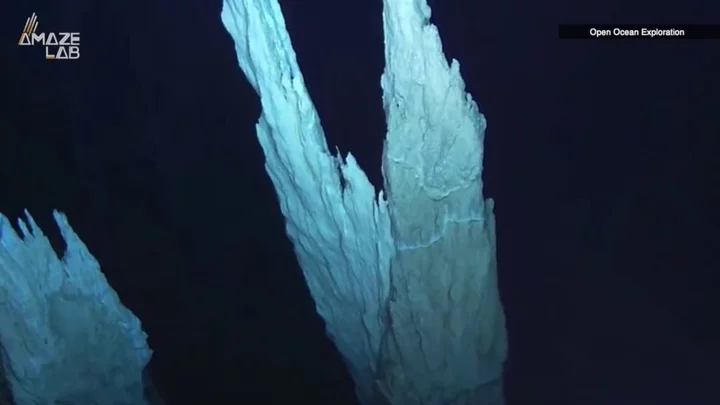
'Lost City' deep in the Atlantic is like nothing else we've ever seen on Earth
The reality of what lies within our oceans has fascinated people since time immemorial, so it’s no wonder we’ve created countless myths about the watery depths. But step aside, Atlantis, scientists have discovered a real Lost City beneath the waves, and this one is teaming with life. The rocky, towering landscape is located west of the Mid-Atlantic Ridge mountain range, hundreds of metres below the surface of the Atlantic Ocean, and consists of massive walls, columns and monoliths stretching more than 60 metres (200ft) tall. To be clear, it’s not the home of some long-forgotten human civilisation, but that doesn’t make its existence any less significant. The hydrothermal field, dubbed the “Lost City” upon its discovery in the year 2000, is the longest-lived venting environment known in the ocean, Science Alert reports. Nothing else like it has ever been found on Earth, and experts think it could offer an insight into ecosystems that could exist elsewhere in the universe. For more than 120,000 years, snails, crustaceans and microbial communities have fed off the field’s vents, which spout out hydrogen, methane and other dissolved gases into the surrounding water. Despite the absence of oxygen down there, larger animals also survive in this extreme environment, including crabs, shrimps and eels. Although, they are, admittedly, rare. The hydrocarbons produced by its vents were not created by sunlight or carbon dioxide, but by chemical reactions way down on the seafloor. This is how life on our planet may have originated some 3.7 billion years, and how it could be formed on others. "This is an example of a type of ecosystem that could be active on Enceladus or Europa right this second," microbiologist William Brazelton told The Smithsonian back in 2018, referring to the moons of Saturn and Jupiter respectively. "And maybe Mars in the past." The tallest of the Lost City’s monoliths has been named Poseidon, after the Greek god of the sea, and it measures more than 60 metres high. Meanwhile, just northeast of the tower, is a cliffside where the vents “weep” with fluid, producing "clusters of delicate, multi-pronged carbonate growths that extend outward like the fingers of upturned hands", according to researchers at the University of Washington. There are now calls for the Lost City to be listed as a World Heritage site to protect the natural phenomenon, particularly given humans’ propensity to destroy precious ecosystems. Back in 2018, it was confirmed that Poland had won the rights to mine the deep sea around the thermal field. And whilst, in theory, the Lost City would not be touched by such works, as Science Alert notes, the destruction of its surroundings could have unintended consequences. Sign up for our free Indy100 weekly newsletter Have your say in our news democracy. Click the upvote icon at the top of the page to help raise this article through the indy100 rankings
2023-11-20 17:45

Microsoft hires ousted OpenAI boss Sam Altman
Microsoft has hired OpenAI co-founder and former chief executive Sam Altman just days after he was ousted from his company. Mr Altman was fired on Friday, less than a year after launching the hugely successful AI chatbot ChatGPT, with OpenAI’s board saying it “no longer has confidence in his ability to continue leading OpenAI”. Microsoft CEO Satya Nadella was reportedly “furious” about being blindsided by Mr Altman’s firing, despite the tech giant being a key investor of the artificial intelligence firm. On Monday, Mr Nadella announced that both Mr Altman and fellow OpenAI co-founder Greg Brockman would be joining his company. “We’re extremely excited to share the news that Sam Altman and Greg Brockman, together with colleagues, will be joining Microsoft to lead a new advanced AI research team,” Mr Nadella wrote on X, formerly Twitter. “We look forward to moving quickly to provide them with the resources needed for their success.” Mr Altman replied to the post: “The mission continues.” Mr Altman had previously posted a picture of himself wearing an OpenAI guest pass over the weekend, together with the caption: “First and last time I ever wear one of these.” Mr Nadella followed up his original post on X with further details about what Mr Altman’s new role might be within the company. “I’m super excited to have you join as CEO of this new group, Sam, setting a new pace for innovation,” he wrote. “We’ve learned a lot over the years about how to give founders and innovators space to build independent identities and cultures within Microsoft, including GitHub, Mojang Studios, and LinkedIn, and I’m looking forward to having you do the same.” Read More OpenAI in talks to bring Sam Altman back days after CEO ouster, reports say OpenAI co-founder Sam Altman ousted as CEO ChatGPT Plus stops signups after major update ChatGPT creator mocks Elon Musk in brutal tweet ChatGPT goes offline ChatGPT update allows anyone to make their own personalised AI assistant
2023-11-20 17:19
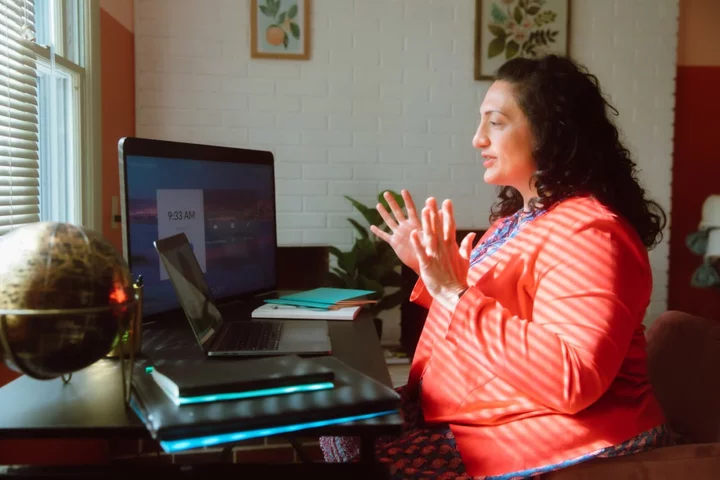
Zoom’s Earnings Day Is Here. The Growth Rate Is the Issue.
During the pandemic, the videoconferencing firm became the world's fastest-growing tech company.
2023-11-20 17:16

Tired of Waiting for Climate Finance, Africa Sets Up Green Banks
With promises of climate finance from the developed world having largely remained unfulfilled, African nations are now looking
2023-11-20 16:23

Esports superstar Faker's team wins trophy at the League of Legends World Championship
South Korea’s esports powerhouse T1 has won the League of Legends World Championship by defeating China-based Weibo Gaming
2023-11-20 14:48

Parents File Another Class-Action Lawsuit Against Roblox
Back in August, a class-action lawsuit was filed against Roblox alleging that the gaming platform
2023-11-20 13:49
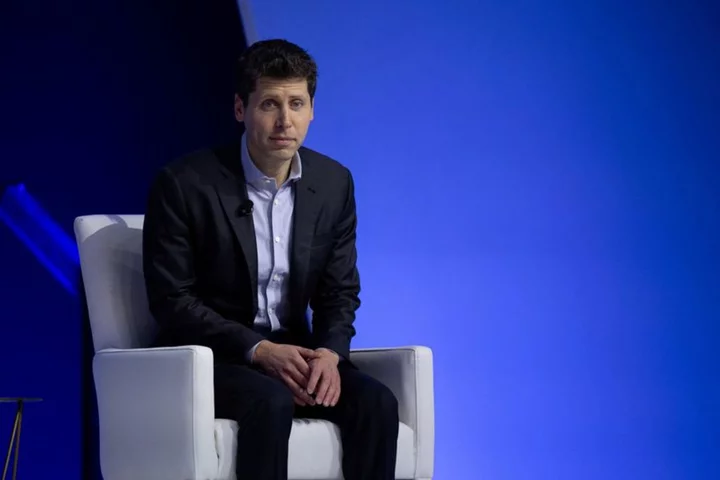
Sam Altman will not return as CEO of OpenAI - The Information
Sam Altman will not return as CEO of OpenAI despite efforts from the company's executives to bring him
2023-11-20 13:18

Businesses embracing generative AI but fear cyberattacks, survey finds
Three-fifths of businesses view generative artificial intelligence (AI) as a good opportunity but many fear they are exposed to cyberattacks, research has revealed. Businesses will “not progress” if they do not take risks, as the race to adopt new and emerging technologies heats up, according to accounting giant PwC. Around 37% of firms believe they are highly or extremely exposed to cyber risks, PwC’s survey of more than 3,900 firms around the world found. More leaders who are responsible for managing a firm’s risk said they thought cyber-related threats were a bigger concern than inflation. About a quarter felt that their organisation was very exposed to geopolitical conflict, amid the escalation of conflict in the Middle East. The survey highlights that if organisations don’t take risks, they will not progress Sam Samaratunga, PwC UK's global head of risk services But the survey, which had more than a quarter of responses from companies worth more than five billion US dollars (£4 billion), found that worries over cyberattacks or tech mistakes were not putting firms off transformation. About 60% said they think generative AI is an opportunity for their business rather than a concern. Generative AI, which refers to complex models which can create something completely new based on a vast set of data, has been cutting through into the mainstream with chatbots like ChatGPT. Earlier this month, British bank NatWest revealed it was launching an upgraded chatbot which is powered by the technology to have human-like conversations with customers. Sam Samaratunga, global and UK head of risk services for PwC UK, said: “In a world that is persistently in a state of flux, it is clear that organisations need to transform, with new and emerging technologies playing a critical role in that transformation. “So it is no surprise that cyber and digital risks are top-of-mind in 2023, with those leaders responsible for managing risk ranking cyber higher than inflation. “However, the survey highlights that if organisations don’t take risks, they will not progress.” Read More Young Britons turning to AI chatbots for help with school and work – survey Police to trial use of drones as first responders to emergencies Apple to adopt system to improve texting between iPhones and Android devices ICO seeks permission to appeal against Clearview AI tribunal ruling Users of iPhones can now check bank balance from Wallet app VR tool aims to help rail passengers spot and safely tackle sexual harassment
2023-11-20 08:21

Young Britons turning to AI chatbots for help with school and work – survey
More than half of young people in the UK have used an AI chatbot such as ChatGPT in the last year to help them with schoolwork, emails or their job, research suggests. Nominet’s latest annual Digital Youth Index, which examines young people’s online habits and attitudes, suggests that while most young people (94%) feel safe online, 76% said they had been exposed to an upsetting experience. That is a 7% rise on last year, with young people reporting an increase in exposure to fake news and hate speech, both up 4%, as well as sexual content, up by 6%. The study, conducted by Opinium, surveyed 4,000 people aged between eight and 25 in the UK. While society at large grapples with artificial intelligence at all levels, it’s encouraging to see young people embracing technology so quickly and using it in their daily lives Paul Fletcher, Nominet The young people surveyed claimed to spend an average of between four and five hours a day online – mostly on social media, chatting with friends or accessing entertainment. Most (95%) of those asked said they were on at least one social network, including children who are under the age limit for some of those services. According to the study, X, formerly known as Twitter, was identified as the platform where the most respondents (77%) had seen distressing content. On AI, the study showed that 53% of those asked said they had used an AI chatbot and were curious about how they could use them in their lives, while 54% said they were concerned about the impact AI could have on jobs in the future. Nominet chief executive, Paul Fletcher, said: “While society at large grapples with artificial intelligence at all levels, it’s encouraging to see young people embracing technology so quickly and using it in their daily lives. “We must continue to encourage this inquisitive nature from the next generation – and despite their adoption of AI, many still have concerns about the potential impact on their future. “When it comes to online safety, it looks like young Brits are growing in confidence, but the rise in exposure to upsetting content highlights that tackling online harm remains important to young people.” The study also indicated that 14% of young people lack access to a laptop or desktop computer, while 15% did not have broadband access at home. Meanwhile, 11% said they had to change or cancel their internet package this year as a direct result of the cost-of-living crisis. “Our data shows us the reality that despite young people’s lives and their education system going online, a concerning 14% of two million of them still don’t have access to a laptop or desktop computer, and this has the potential to significantly disadvantage those that would benefit the most,” Mr Fletcher said. Read More Businesses embracing generative AI but fear cyberattacks, survey finds Police to trial use of drones as first responders to emergencies Apple to adopt system to improve texting between iPhones and Android devices ICO seeks permission to appeal against Clearview AI tribunal ruling Users of iPhones can now check bank balance from Wallet app VR tool aims to help rail passengers spot and safely tackle sexual harassment
2023-11-20 08:18
You Might Like...
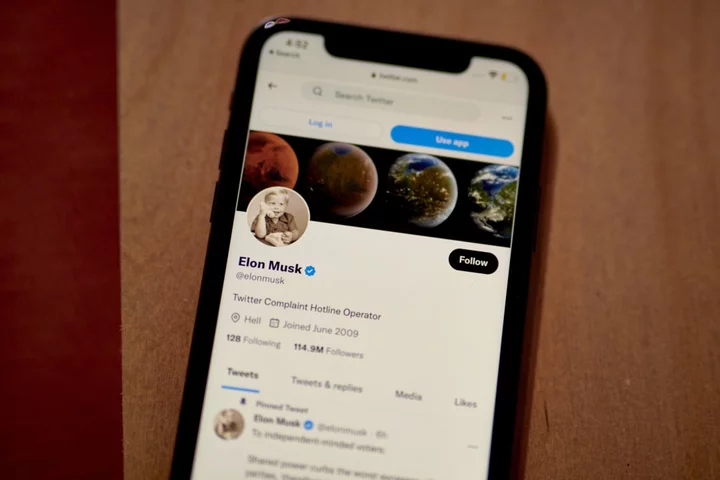
Twitter Blocks People From Seeing Tweets Unless a Registered User

Neopets will finally fix its games in $4 million overhaul
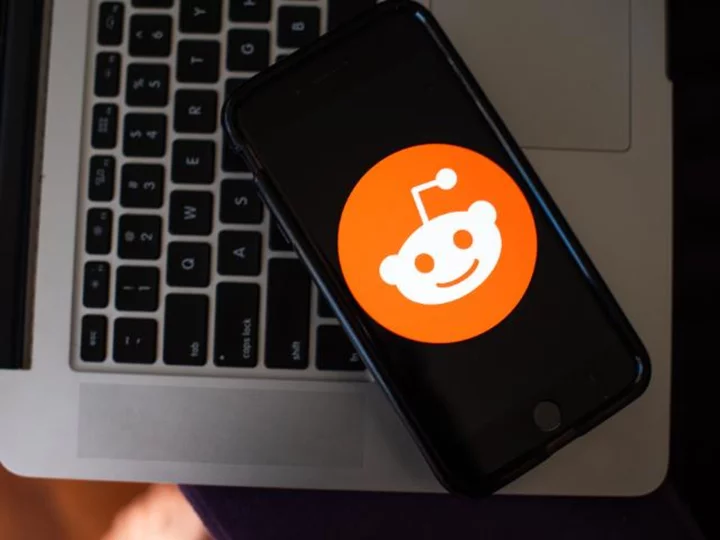
The Reddit blackout shows no signs of stopping

iOS 17.2: Update bringing host of new changes including Journal app and iPhone 15 Pro features

GigNet Promotes Luis de Potestad to Vice President – Public Affairs and Special Projects

Save 43% on this portable power station that can charge 13 devices at once

Nationwide Preventive Healthcare Company, Life Line Screening, Announces Ray Li as Vice President of Product

Sony Celebrates TLOU 10th Anniversary With New Merch
